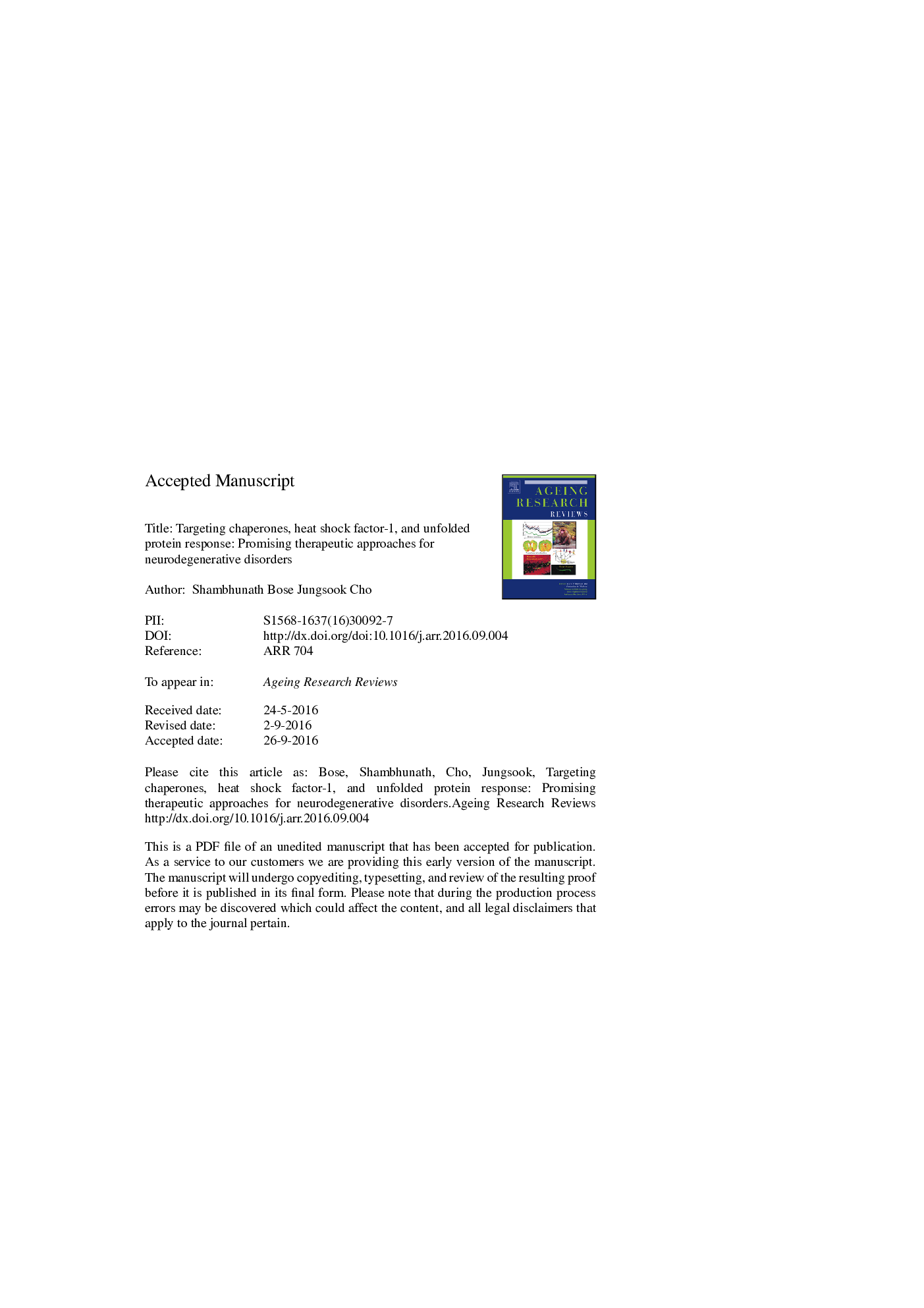| Article ID | Journal | Published Year | Pages | File Type |
|---|---|---|---|---|
| 5500723 | Ageing Research Reviews | 2017 | 89 Pages |
Abstract
Protein misfolding, which is known to cause several serious diseases, is an emerging field that addresses multiple therapeutic areas. Misfolding of a disease-specific protein in the central nervous system ultimately results in the formation of toxic aggregates that may accumulate in the brain, leading to neuronal cell death and dysfunction, and associated clinical manifestations. A large number of neurodegenerative diseases in humans, including Alzheimer's, Parkinson's, Huntington's, and prion diseases, are primarily caused by protein misfolding and aggregation. Notably, the cellular system is equipped with a protein quality control system encompassing chaperones, ubiquitin proteasome system, and autophagy, as a defense mechanism that monitors protein folding and eliminates inappropriately folded proteins. As the intrinsic molecular mechanisms of protein misfolding become more clearly understood, the novel therapeutic approaches in this arena are gaining considerable interest. The present review will describe the chaperones network and different approaches as the therapeutic targets for neurodegenerative diseases. Current and emerging therapeutic approaches to combat neurodegenerative diseases, addressing the roles of molecular, chemical, and pharmacological chaperones, as well as heat shock factor-1 and the unfolded protein response, are also discussed in detail.
Keywords
TUDCAHspAPPSmall HSPMPTPAAVsHSPXBP1PrPeIF2αSBMA17-AAGPQCGRP78PBACRePBIXGADD34HSF-1TMAOGeranylgeranylacetoneMJDNBDERADSBDPTMGHKLN-domainATFNSAIDAβ17-DMAG4-PhenylbutyrateGGABiPC/EBP homologous proteinIRE1αPMdtetratricopeptide repeatspinal and bulbar muscular atrophyamyloid-βNeurodegenerative disordersamyotrophic lateral sclerosisTauroursodeoxycholic acidpost-translational modificationAlzheimer's diseaseALSMachado-Joseph diseaseHuntington’s diseaseParkinson's diseaseER-Associated DegradationTrimethylamine N-oxideCHOPC-domainC-terminal domainN-terminal domainsubstrate binding domainmiddle domainCNSTPRSODSuperoxide dismutaseUbiquitin-proteasome systemcentral nervous systemPharmacological chaperoneMolecular chaperonesendoplasmic reticulumProtein misfoldingNon-steroidal anti-inflammatory drugHeat shock factor-1activating transcription factorMultiple sclerosisNefHopMolecular weightAdeno-associated virusUnfolded protein responseBinding immunoglobulin ProteinHeat shock proteinProtein phosphatasePrion proteinamyloid precursor proteinprotein kinase RNA-like ER kinasePERKMolecular chaperoneProtein quality controlGeldanamycinglucose regulated protein 78Androgen ReceptorUPS
Related Topics
Life Sciences
Biochemistry, Genetics and Molecular Biology
Ageing
Authors
Shambhunath Bose, Jungsook Cho,
